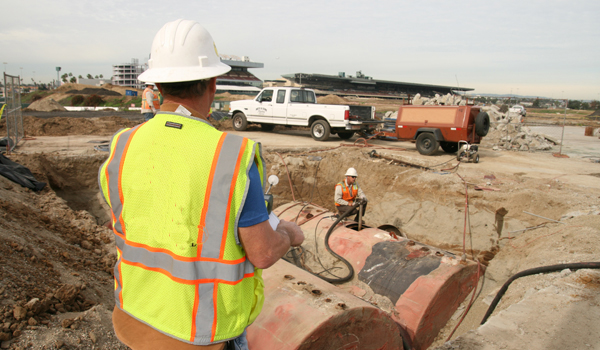When it comes to ensuring the health and safety of your family, there can be hidden dangers lurking in unexpected places. One often-overlooked area that can impact your health is the soil beneath your feet. Soil vapor testing is a crucial step in uncovering potential hazards that could be seeping into your home and affecting the well-being of your loved ones. In this article, we will explore the importance of soil vapor testing and why you should consider incorporating it into your health and safety measures.
The Basics of Soil Vapor Testing
Soil vapor testing is a process that involves sampling the air in the soil to detect the presence of harmful chemicals or gases that can pose risks to human health. These contaminants can come from a variety of sources, such as industrial activities, underground storage tanks, or even natural processes like the breakdown of organic materials in the soil. By testing the soil vapor, experts can identify any potential hazards and take steps to mitigate them before they cause harm.
Common Contaminants Detected Through Soil Vapor Testing
- Volatile Organic Compounds (VOCs): These chemicals are commonly found in household products, paints, and solvents. Prolonged exposure to VOCs can lead to respiratory issues, headaches, and in severe cases, even cancer.
- Radon: A radioactive gas that occurs naturally in the soil, radon is the second leading cause of lung cancer in the United States. Testing for radon through soil vapor testing can help prevent long-term health risks.
- Hydrocarbons: These compounds are often associated with fuel leaks or spills and can contaminate the soil and air, posing serious health risks to individuals living nearby.
The Health Implications of Soil Vapor Contamination
Exposure to contaminated soil vapor can have serious health implications, especially for vulnerable populations such as children, pregnant women, and the elderly. Some of the potential health effects of soil vapor contamination include:
Potential Health Effects
- Respiratory issues, such as asthma or chronic bronchitis
- Neurological problems, including headaches, dizziness, and cognitive impairment
- Cancer, particularly lung cancer from exposure to radon or other carcinogenic compounds
- Developmental delays in children exposed to toxic chemicals in the soil
The Importance of Soil Vapor Testing for Your Health
Given the potential health risks associated with soil vapor contamination, it is essential to prioritize soil vapor testing as part of your overall health and safety measures. Here are some key reasons why soil vapor testing is important:
Reasons to Prioritize Soil Vapor Testing
- Early detection of potential hazards: Soil vapor testing can help identify contaminants before they pose a significant risk to your health, allowing you to take proactive measures to address the issue.
- Protecting vulnerable populations: Children, pregnant women, and the elderly are particularly susceptible to the health effects of soil vapor contamination. By conducting soil vapor testing, you can safeguard the well-being of your loved ones.
- Promoting peace of mind: Knowing that your home is free from harmful soil contaminants can provide peace of mind and a sense of security for you and your family.
- Complying with regulations: In some areas, soil vapor testing may be required by law, especially for properties located near known sources of contamination. By conducting regular testing, you can ensure compliance with regulatory standards.
How to Conduct Soil Vapor Testing
If you are concerned about soil vapor contamination on your property, it is advisable to consult with a qualified environmental testing company to conduct soil vapor testing. The process typically involves the following steps:
Steps in Conducting Soil Vapor Testing
- Site assessment: The environmental testing team will assess the property and identify potential sources of contamination that may impact soil vapor quality.
- Sampling and analysis: Soil vapor samples will be collected using specialized equipment and analyzed in a laboratory to detect the presence of harmful contaminants.
- Reporting and recommendations: Based on the test results, the testing company will provide a detailed report outlining any contaminants found and recommendations for remediation if necessary.
- Follow-up monitoring: In some cases, follow-up testing may be recommended to ensure that any remediation efforts have been successful in addressing the contamination.
Conclusion
Soil vapor testing is a critical step in safeguarding your health and the well-being of your family. By identifying and addressing potential soil vapor contaminants early, you can reduce the risks of exposure to harmful chemicals and gases that can have serious health implications. If you have concerns about soil vapor contamination on your property, don't hesitate to reach out to a professional environmental testing company to conduct soil vapor testing and ensure a safe living environment for you and your loved ones.

